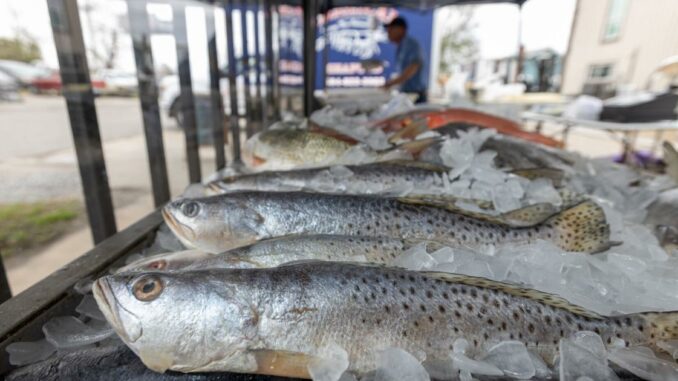
No fishery, no business
It’s taken a few years, various studies and around 8,600 public survey responses to arrive at this point in the debate over what is officially known as the spotted sea trout. The sticking point now is a matter of inches — or, more precisely, an inch and a half.
Current recreational limits, in place since the 1980s, allow anglers to keep 25 trout per person per day, as long as they’re all at least 12 inches. A proposal by the Wildlife and Fisheries Commission would have reduced that to 15 trout of at least 13.5 inches.
The science behind that proposal shows that it would allow stocks to recover over a period of five years. It was also preferred among several options suggested in public surveys.
That would have put Louisiana closer to what its Gulf Coast neighbors allow. In Mississippi, for example, the limit is 15 fish of at least 15 inches. Limits are far stricter in Texas and Alabama.
The proposed reduction to 15 total trout did not generate much controversy. But raising the length requirement did.
Speckled trout are seen at the outdoor seafood market in front of American Seafood in New Orleans on Thursday, February 9, 2023.
Charter captains said it would pose a concern given that, in many cases, most of the trout their clients catch are at around 12 inches. Biologists point out that’s simply more evidence of the problem.
“I heard from many charter captains in the Lafourche area, Terrebonne area, that feel they don’t really come across too many trout in their areas that are above 12 inches,” said Richard Fischer, head of the Louisiana Charter Boat Association, which includes about 400 guides.
Fischer, unlike some charter guides, says he generally believes the state’s underlying science on the problem is solid. He feels, though, that compromise options could be considered that would restore the stock, but more slowly.
Others say it is past time to act and delaying the recovery presents too many risks.
“If you’ve got no fishery, then you have no business,” said Rebecca Triche, head of the Louisiana Wildlife Federation. “There is a concern that you will surpass that point where you can recover in a meaningful way.”


Leave a Reply